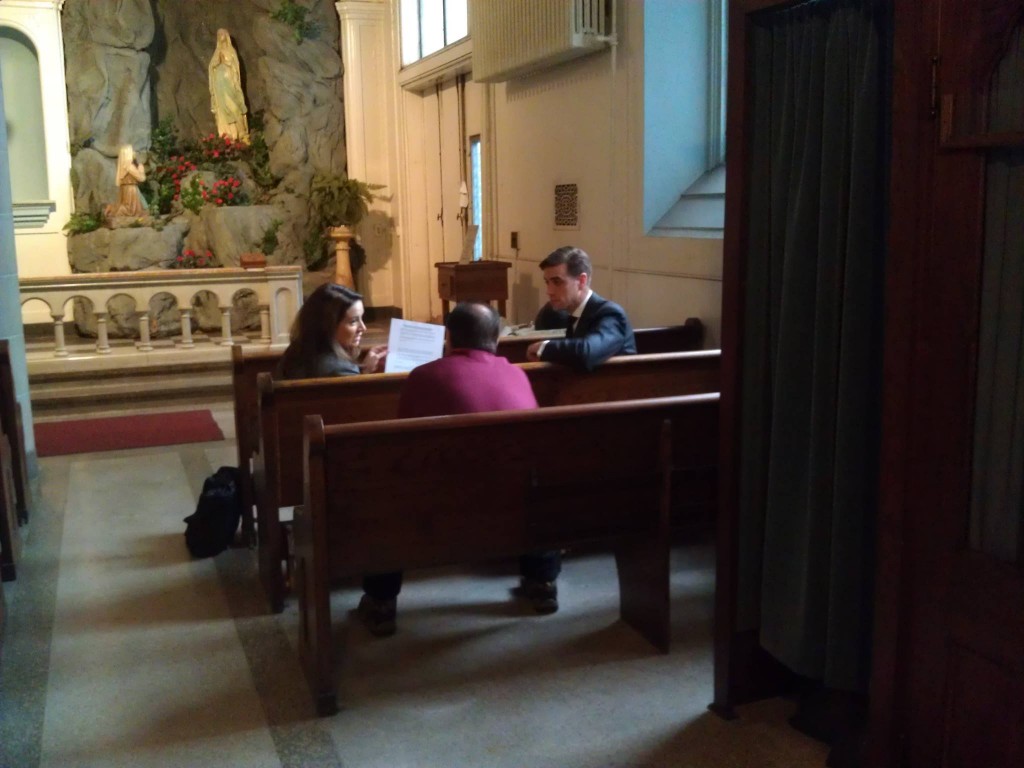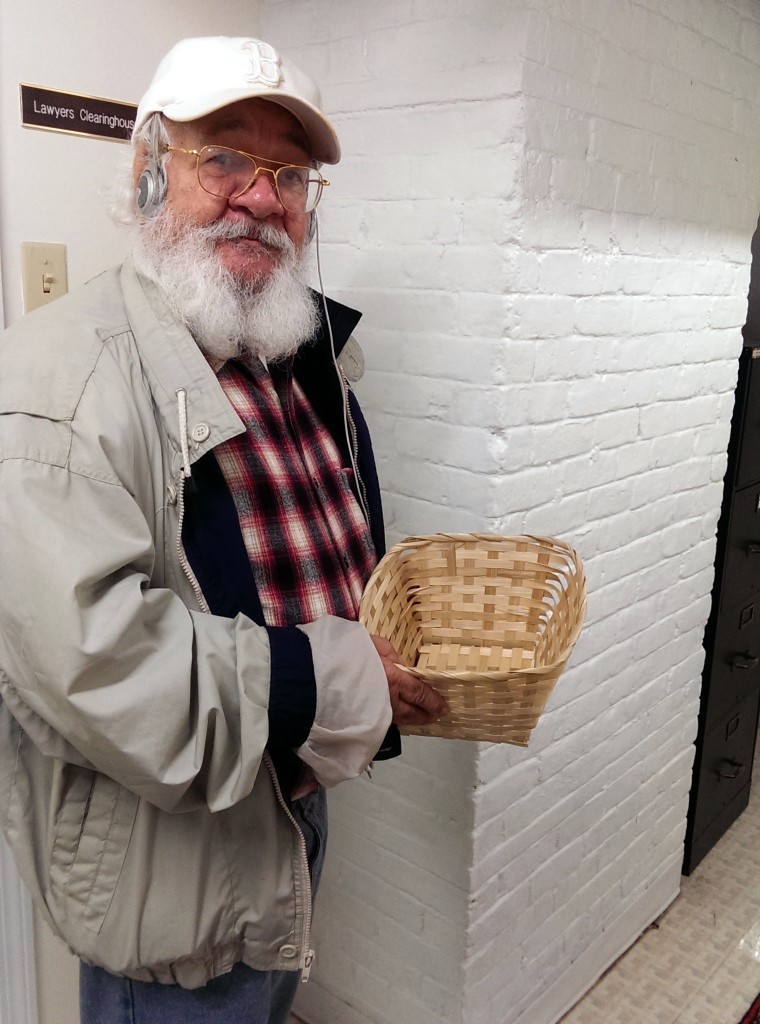Choate lawyers make an impact at legal clinics for the homeless
Emily Hodge, a partner at Boston law firm Choate Hall & Stewart and a member of the Lawyers Clearinghouse board of directors, and Brando Twilley, a staff attorney, traveled two very different paths to get where they are today. Hodge took the traditional route: she attended law school, worked as a summer associate, and took a job with the firm after graduation. Twilley, on the other hand, has a background in music. He never planned to become a lawyer, but fell in love with the field of law after taking a job as a paralegal.

Choate attorneys have been volunteering with the Clearinghouse’s Legal Clinic for the Homeless since the program’s inception 21 years ago, when it was first held at the Pine Street Inn. And though volunteers come and go, Hodge and Twilley have remained constant since they started. Collectively, they have participated in nearly 30 clinics.
“It’s an incredible opportunity to get immediate and meaningful client interaction,” says Twilley. “One of the things that I’ve taken away from it is the ability to connect with people of diverse backgrounds, upbringings, and interests, and to broaden my own experiences.”
The connection Twilley speaks of is evident in the work he and Hodge are currently doing with a legal clinic client, Valdeliro dos Santos. When they met him, he was facing a housing issue that nearly left him homeless. They were able to ensure he kept his housing after representing him at multiple hearings, and they are now assisting him with an immigration matter.

“He’s just a pleasure to work with,” says Hodge. “He’s an artist and he has extensive, fascinating life experience. He often brings us artwork that he’s made and it’s so thoughtful and amazing.”
Hodge first attended a clinic as a summer associate at Choate back in 2005—an experience she describes as “powerful.” Today she is the firm’s clinic co-coordinator, responsible for scheduling the firm’s clinic involvement and keeping track of each pro bono case. She says she always knew pro bono work would be a priority for her, no matter where she ended up in the legal field.
These days, pro bono matters more than ever, as legal aid organizations struggle to meet the overwhelming demand for services. Experts have referred to this dearth of assistance as a “crisis,” and, because of a lack of funding, legal aid organizations in Massachusetts reportedly turn away nearly two-thirds of those who qualify for help.
Closing this justice gap will require an increase in legal aid funding, but when attorneys who work full time in private practice take time to volunteer with clinic programs, they are making an enormous difference in the lives of clients whose needs have often gone unmet for a long time.
“You’re oftentimes making a really, really big difference in somebody’s life by doing something that may seem small to you,” says Hodge. “It can be working out a single issue, but it removes a barrier that somebody’s facing and allows them to really make some progress.”
And progress can be hard to come by on one’s own. The legal system is vast and can appear convoluted from the outside. Lawyers require years of training to begin to understand the nuances of such a system, and because such education is not accessible to everyone, Twilley believes there is a responsibility for lawyers to give back to the community.
“We are among the few who can make the legal system work for individuals who have very limited resources,” he says. “Lawyers can make an incredible impact.”
Choate Hall & Stewart is an active participant in many pro bono activities. The Clearinghouse would like to thank the firm for their dedication to providing pro bono legal services to those in need.